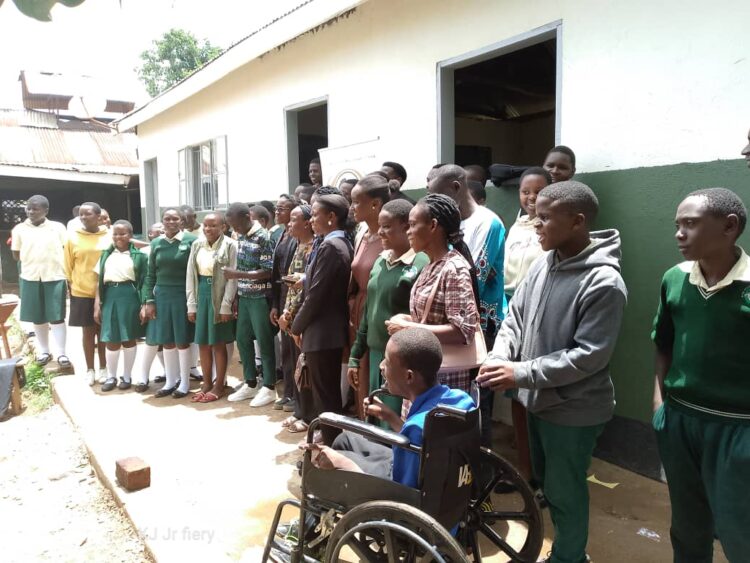Ritah Niwarimpa
Despite the Ugandan government’s commitment to inclusive education, students with disabilities continue to face significant challenges in accessing quality education. However, schools like Sure Prospects Secondary School in Katabi Town Council, Entebbe, are working tirelessly to provide a supportive environment for these students.
According to Madam Naiga Florence, the school’s director, inclusivity is not just a policy but a way of life at Sure Prospects. “We empower students regardless of their abilities to learn, grow, and thrive in a supportive environment,” she says. However, the school faces its own set of challenges, including inadequate facilities, a shortage of funds to provide special meals, and a lack of a physiotherapist.
Moreover, the school struggles with parental cooperation, which hinders the delivery of comprehensive services to students with disabilities. “Most parents of these students fail to cooperate with the administration, making it difficult for us to provide enough services,” Madam Naiga notes.
The students themselves face unique challenges. Byarugaba Jordan spoke on behalf of his fellow student, Mukisa Aaron, who is both crippled and half-mute. “He faces difficulties when he needs to use a toilet, as many students abandon him, making him feel isolated and discriminated against,” Jordan explains.
Maria Nagawa, a senior one student with an eye impairment, shares her own struggles. “Every time I’m writing, I have to stand up and go close to the board to see what’s written,” she says. “This disrupts my fellow students, but I’m grateful that the school offers special programs, especially remedials, to make sure students with disabilities are not left behind.”
Despite these challenges, Sure Prospects Secondary School remains committed to providing a nurturing environment for students with disabilities. As Madam Naiga emphasizes, “Inclusivity is not just a policy, but a way of life.” The school’s dedication to empowering students with disabilities serves as a beacon of hope for a more inclusive and supportive education system in Uganda.
According to the World Bank, out of 1,370,583 students enrolled in a secondary school in Uganda, 8,945 students (0.6%) have special learning needs. Visually impaired students comprise the largest share of these students, followed by those with physical disabilities. Pupils with autism and multiple handicaps were fewer among enrolled students.
The Ugandan government has, however, been instrumental in promoting an inclusive education for all. Despite these efforts, challenges exist at all levels. Access is limited, and retention and quality are negatively affected by constraints ranging from a lack of physical capacity, infrastructure, and learning materials to inadequate teacher capacity and negative attitudes and stigma. Public financing for special needs education accounts for only 0.1% of the education sector budget. Most children with special needs are older than their classroom peers. This requires imparting more life and vocational training so that they can acquire appropriate skills for their self-sustainability.



















Discussion about this post